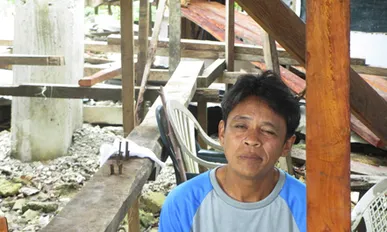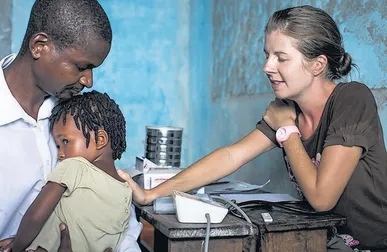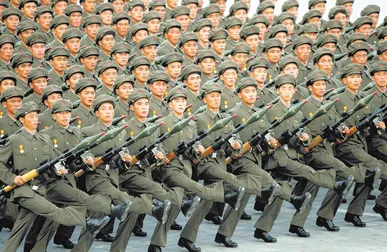
Philippines: the day the earth moved
‘I grabbed my six-year-old and we were all screaming and praying for God’s grace. I saw our walls falling down, then we ran out.’ Dalia’s tears began to slip down her cheeks as she re-lived the terrifying morning of 15 October 2013. The 7.2 magnitude earthquake that struck the Philippines island of Bohol.
‘We stayed in an evacuation centre for two, almost three weeks, then in a tent. When we went back to check the church we found it destroyed. We still sleep in the tent but we’ve put it inside a small bamboo hut that we built during the rains. When people ask me, ‘how can you smile?’ I say I smile because I am alive! That’s something to thank God for.’

Zambia: life and death on the lake
‘The minute we saw the lake, I said to my
husband Chris, “That’s it. I’m home”’.
Ever since she was a
little girl, Nicola
(Nicky) Tiltman had cherished a passion to
become a missionary nurse. She had never
even heard of Africa’s Lake Tanganyika until
the
couple
applied
to
Operation
Mobilisation (OM) and learned that a nurse
and person with administrative skills were
required in the lakeside town of Mpulungu.
The job descriptions suited them both.

North & South Korea: crossing the great divide
‘There used to be 3,000 churches in the North of Korea — more than in the South’, observes Operation Mobilisation’s Northeast Asia Regional Leader, Gim SuYong. ‘Many pastors in the North left and started some of the biggest churches in the South. In fact, my own fellowship started that way. But 70 years ago the country was divided into two: North Korea and South Korea.’
For the last seven years Gim SuYong has partnered with the church in leading a Bible study among North Korean defectors. Approximately 25,000 North Koreans now live in South Korea, he says, and every year 3,000 more come through China. For two years Gim SuYong was designated by the Korean Church Council as leading pastor of a Korean defector camp. He has met several thousand men and women who have chosen to escape the North.